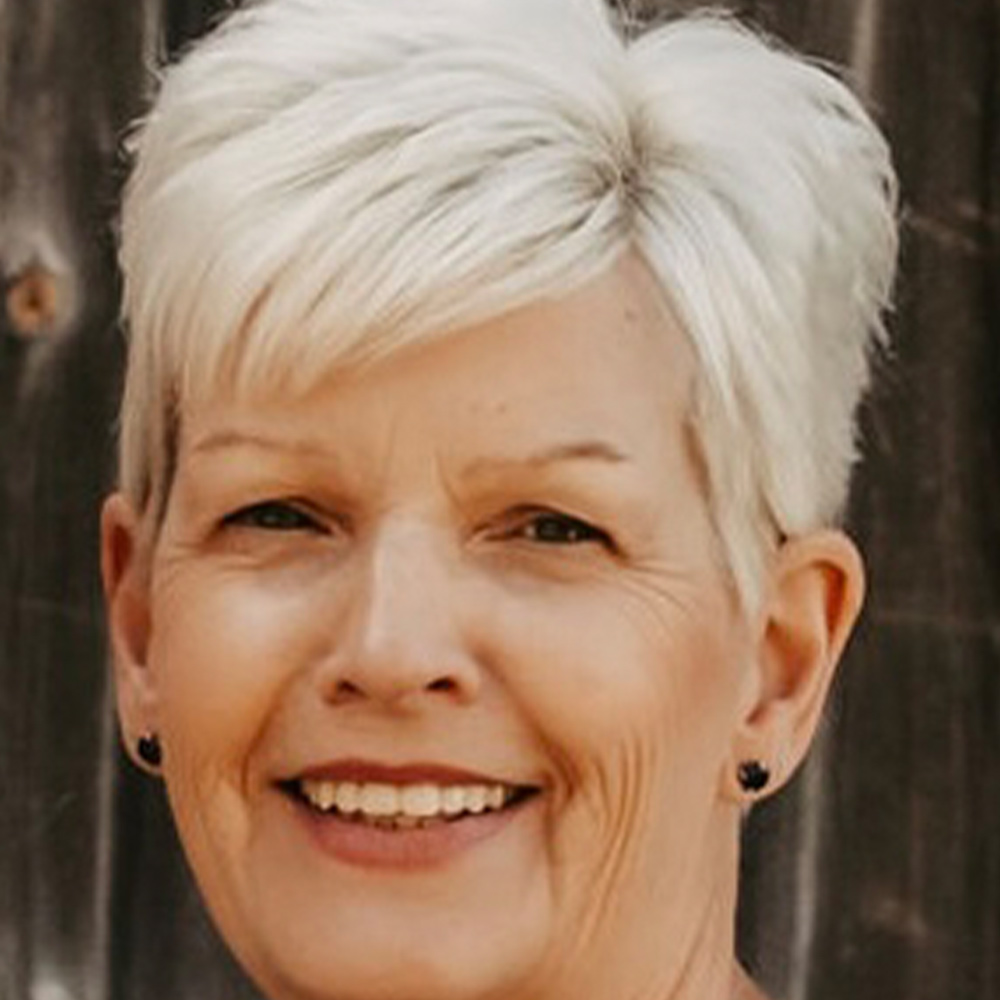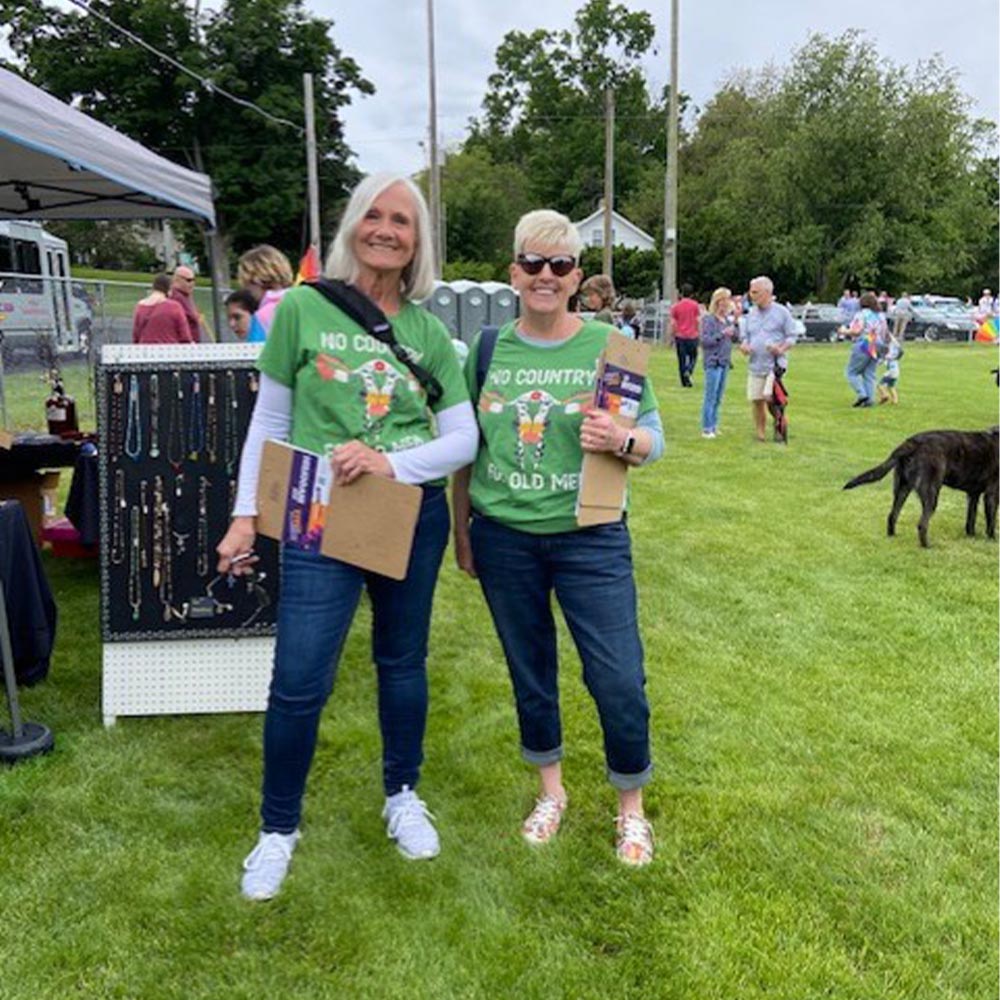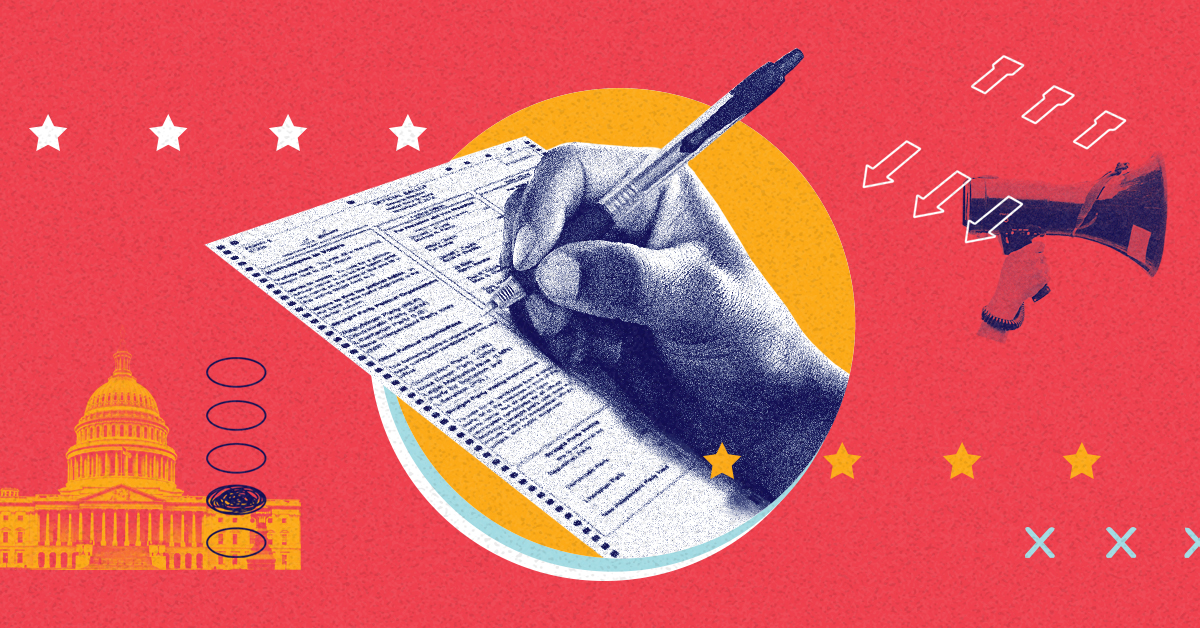Ask the Experts: How to Fight for Reproductive Freedom in Your Community | News & Commentary
With the upcoming Midterms, we’re chatting with some of our amazing volunteer partners about what issues are most important to them and how they’re motivating voters to cast their vote. We hope these conversations inspire you to vote for your values and join us in this unique fight to protect our nation.

American Civil Rights Union
Vote for your values | American Civil Rights Union
Join us in this election by pledging to vote for your values and fight for your rights by encouraging your friends and family to do the same.
This week we spoke to Connie Horton-Kross, a retired nurse from Holland, Michigan who has worked in reproductive health her entire career and is now a volunteer with the ACLU of Michigan. Through the determination of Connie and countless other abortion rights advocates, the Election Committee for Reproductive Freedom for All, supported by the Michigan ACLU, rallied and collected more than 750,000 petition signatures to put Proposal 3 to a vote this November, which protects would recover from Roe v. calf in the Michigan Constitution. Connie tells us what motivated her to get involved, why she voted yes to suggestion 3, and why it’s so important to talk to her friends and family about voting.

Connie Horton-Kross
Image courtesy of Connie Horton-Kross
ACLU: What motivated you to volunteer with the ACLU of Michigan, specifically the Reproductive Freedom for All initiative?
Connie Horton-Kross: Nursing has been my passion all my life. My public health career has focused on reproductive health. I retired as a public health nurse in 2018 but remained involved as a private individual with the Michigan Family Planning Advisory Council. I also agreed to distribute COVID-19 vaccines but wanted to do more. That’s when I really started observing what was going on with the Dobbs decision. I’ve never really been politically active, apart from some volunteer work, but I couldn’t sit here and let that happen this time. At first I just wanted to take a few petitions and get them signed. But then I started events and mobilized people and it just kind of grew into this whole thing. I’ve spoken to professionals and at conferences about abortion and reproductive health before, but going out there and talking to someone who might have a different opinion was scary. But I really gained confidence from it and I never had any negative interactions the whole time.
ACLU: How do you reach out to get people involved?
CH: Most of my outreach activities are specific to people. For example, I have a group of friends who are also retired nurses. I brought them all together and they volunteered and collected signatures with me. Now that they’ve gotten involved, let’s go to happy hour and discuss next steps. I also participate in activist groups to encourage people to mobilize. To be overturned following Supreme Court decision Roe v. calf, we actually had a march in Holland, Michigan, with over 1,500 people. I met women in their early 20s with megaphones marching. People had tears in their eyes because Holland is so conservative and to see that kind of support… it still makes me sick. It was just amazing to see all walks of life, all ages, saying we couldn’t let this happen.
I’ve learned that if I’m passionate enough and not afraid to speak up, I can motivate people to get involved.
ACLU: How do you explain to people why voting is important and convince them to vote in the upcoming elections?
CH: I just start a conversation. I make sure they are registered. If they aren’t, I’ll keep the QR code to register for voting on my clipboard. I met many young people who had not yet registered and who did so directly on the website so that they could sign the petition. I really push that and tell them to say what happens. If you don’t participate, things will happen that you have no control over. The perfect example of this is reproductive freedom. These people will make rules and laws about you and your body. If you don’t go out and vote, you really can’t complain. That’s why I tell my kids if you don’t vote, you just consented, whatever happens.
ALU: WWhat would you say to people who feel like their voice doesn’t matter or who just feel powerless?
CH: I tell them if we give up, they win and they’ll just take more freedom from us. I’m just focusing on this point, that this takes away your rights and choices. For example, with abortion, if they make that choice yours, what’s next? This is health care. It’s part of the decision between you and your doctor. It’s not supposed to be political. That way I can be quite persuasive and talk to people about the facts.

Connie Horton-Kross (right) and a friend stop for a photo while courting.
Image courtesy of Connie Horton-Kross
ACLU: How do you motivate your own friends and family to get out and vote?
CH: I talk to all my friends, especially about abortion. My mother-in-law is 86 years old and was staying at my home on July 4th, the last weekend of the petition. She started seeing all these people coming in and making last minute petitions, so I told her I had volunteered. She knows what my job was, so I explained to her that some women who have an ectopic pregnancy can’t get a procedure to remove the tissue afterwards, other women will rupture membranes prematurely and could get an infection, but they have to get it very ill before they can get a layoff. I met everyone strictly from a medical point of view and how this will affect women’s lives. I think she’s ready to listen. Also my son who is 25 years old and more conservative didn’t sign the petition and we had some discussions about it. It’s interesting that we have such opposing views, but it’s okay. We could talk openly.
ACLU: Has anything surprised you about your activism on this issue?
CH: It’s surprising to see the amount of support and passion. Women who came out to sign petitions, many of whom had their own abortion stories. I didn’t know any of these people. They just came out to sign the petition and we sat there my husband and I and they opened up and told us their story. Stories about how they could have died without an abortion or how they would now live in poverty. This happened at least a dozen times or more.
ACLU: Why did you decide to share your story? And what else would you like to tell people about your experience?
CH: I want people to know that this made me feel really empowered, and I felt like I was empowering others to come out and help as well. I’ve learned that if I’m passionate enough and not afraid to speak up, I can motivate people to get involved. It was great to see my friends and see that confident women empower women. I look forward to continuing to fight for it and see it through.
Are you interested in working with people like Connie to defend our rights? Find out more about how you can get involved here.

American Civil Rights Union
Midterm elections: How these offices affect your rights | News & Comments | American Civil Rights Union
Elected officials don’t have the final say when it comes to our rights – we do. Let the ACLU help you step into your power at the ballot box!
Paid for by the American Civil Liberties Union, Inc., 125 Broad Street, New York, New York 10004 in association with Reproductive Freedom for All.